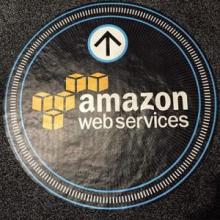New AWS Managed Services Raises Channel Conflict Red Flag, Partners Say
Submitted by Joseph Tsidulko on

Begin told CRN that partners shouldn’t rely on driving business from those services anyway.
"There isn't a lot of value in providing patch management or incident escalation services in the cloud world, where all this stuff can, and should, be automated," Begin said.
Jarrod Levitan, chief cloud officer at TriNimbus, one of Amazon's largest Canadian partners, told CRN that the way MSPs can avoid business disruption is to focus on applications, not just infrastructure.
"We manage a lot of the applications for our customers on top of the operating system," Levitan told CRN. "If you want to stay relevant, you have to worry about what's on top of AWS."
CRN first reported in April on development and beta-testing of the toolkit for automating tasks that are traditionally included in the catalogs of managed services partners. The project, at the time code-named AWS Sentinel, came in response to some of Amazon's largest customers expressing interest in managing workloads in a self-service fashion, said many sources.
Cirrity, a 100 percent channel focused cloud services provider, is actively recruiting disgruntled AWS partners, said Gerry Baron, chief marketing officer and channel chief for the Atlanta-headquartered company. He said the new AWS Managed Services offering is a direct attack on the most profitable piece of the business.
"Partners don't make a lot of margin with Amazon cloud services, and now that they've announced Managed Services, they are going to head-to-head with [partners]. That's where the real stickiness was and that real lucrative part that is now being cut out of the equation," he said.
AWS Managed Services has, in essence, turned Amazon into a direct competitor to the channel, said Barron. The new managed services offering effectively "pushes partners aside," he said.
Bob Venero, CEO of Holbrook, N.Y.-based solution provider Future Tech, said partners selling the AWS offering are "feeding the competition" by "supporting and selling" a cloud services offering that undercuts their own profitability. "We went down the AWS path and met with them a while ago and it is definitely not a partner-friendly environment or a partner-friendly offering," he said. "It wasn’t built for that."
Venero, whose company is focused on large enterprises, said he sees the AWS offering as a "risky endeavor" for large companies. "If there is an outage, you lose connectivity to your business applications that run on the AWS platform. They are simply not available - versus an internal hybrid cloud approach which is much more effective and robust for large corporate enterprises," he said.
Gina Narcisi and Steven Burke contributed reporting to this story.






